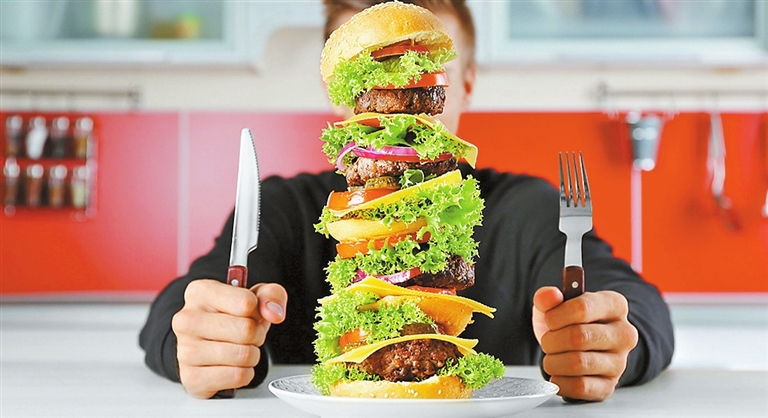


IT’S never too late to reverse your worst habits (stopping smoking, drinking, over-eating, and more) and immediately start living a happier, healthier life. Here are some suggestions. Bad habit No. 1 Eating when you’re not hungry Losing touch with your body’s natural hunger and satisfaction signals can lead to chronic overeating and unhealthy extra pounds — which increases your risk for diabetes, heart disease, and other serious conditions. And if it’s junk foods you eat, you’re also flooding your body with unhealthy ingredients. By paying attention to your hunger signals and switching to healthy meals and snacks, you can boost nutrition, control cravings, and avoid energy slumps. Eat because you’re hungry — not because you’re stressed, bored, angry or sad. And finish eating when you feel just a little bit full, not stuffed. Avoid keeping unhealthy food in your home, or at least make sure you have more healthy foods, like fresh fruits, veggies, nuts. Think low-fat versus fatty treats; whole-grain versus unhealthy carbs. And when you eat those healthy snacks, eat them as if they were a meal: on a plate, accompanied by a glass of water, with you sitting down at the table. Bad habit No. 2 Eating too much fast food A steady diet of double cheeseburgers and fries washed down with an oversize soda or milkshake can lead to a growing waistline and the health problems, like heart disease and diabetes, that come with it. Trans fat, often found in fast food, raises triglycerides and LDL cholesterol, which increases inflammation and contributes to the buildup of fatty plaque in artery walls. The health benefits of making the switch to healthy food will be almost immediate and will have substantial lasting benefits. Making a permanent lifestyle change won’t be easy at first. Start by cutting back a little each week and by buying less each time you go. For instance, replace the soda with a water or the fries with a salad. Avoid popping into a fast-food joint out of habit or on a whim. Cook more at home. Preparing your own healthy meals will save you money. Bad habit No. 3 Getting sunburns If you love sunbathing or make an effort to maintain a golden-bronze tan, you’ve unwittingly contributed to the aging of your skin. Sunbathing destroys the elastic fibers that keep skin looking firm and smooth, leading to earlier wrinkles, blotches, freckles, and discolorations. More importantly, sunburns contribute significantly to cancers of the skin. If you’ve included trips to the tanning salon, that’s even worse. Despite what ads suggest, using tanning beds doesn’t build up a safe base tan. It actually raises your risk for skin cancer and wrinkles. First of all, always wear a high-SPF sunscreen if you’re going to be in the sun. Sticking to the shade and wearing a hat, sunglasses, long sleeves and pants during peak sunburn hours can also help keep your skin safe. Schedule an annual mole check by a dermatologist; the doctor will inspect your skin for any unusual changes. And keep your eyes on your skin yourself. Bad habit No. 4 Overusing painkillers and sedatives When they’re not taken properly, long-term habitual use of prescription pain killers can lead to addiction, causing more problems than it solves. Even OTC drugs like ibuprofen or aspirin for arthritis or muscle pain over time can increase your risk for ulcers, gastrointestinal bleeding, high blood pressure, and heart attacks. Clues you’re taking too much of a calming drug or sleeping pill include memory loss, excess sleepiness, feeling unresponsive or confused, and falling frequently. When meds make you feel good, you may want to keep on taking them, turning them into a habit or addiction before you know it. New pain-relief strategies can ease muscle, joint, and head pain with fewer pills and side effects. For chronic pain, ask your doctor about switching to acetaminophen; it doesn’t cause stomach irritation and doesn’t raise blood pressure like aspirin and ibuprofen. Save ibuprofen for flare-ups of severe, short-term pain. For frequent headaches, see your doctor; migraines can be stopped often with the right medication. If you think you’ll be susceptible to addiction, challenge any doctor who wants to put you on pain, mood, or sleeping medication long-term. If you’re already relying too much on them, get help if you can’t stop. Bad habit No. 5 Overspending your way into debt Money worries can have serious health consequences. In a Rutgers University telephone survey, responders said financial stress contributed to high blood pressure, depression, insomnia, headaches, digestion troubles, aches and pains, ulcers, excessive eating and drinking, and gaining or losing weight. Regaining a hold on your finances takes time, can be hard on your ego and your lifestyle, and requires you to be constantly vigilant, plus it’s all too easy to revert back to your old habits. But for those who succeed, the results are nothing short of amazing. You’ll feel more in control of your life with less stress and fewer worries. There are many things you can do to gain control over your finances. Educate yourself on the basic rules and methods of personal finance — including credit cards, mortgages, budgeting and investing. Create and keep a budget, keeping track of your incomes and expenses. (SD-Agencies) | 
